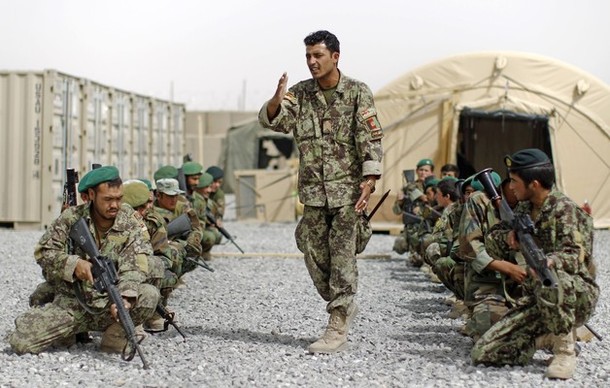
From William B. Caldwell, Allied Command Operations: In the past ten months there has been measured progress in the Afghan National Security Force (ANSF); in quality as well as quantity. Since last November, NATO Training Mission Afghanistan has supported the Afghan Ministries of Interior and Defense to recruit, train and assign over 100,000 soldiers and police, an incredible feat. To achieve this, the training capacity was increased, moving from under 10,000 seats for police training alone to almost 15,000. …
In order to develop the systems and institutions that are required to continue to professionalize and grow the ANSF, specialty training is required. Schools that teach skills like acquisitions, logistics, maintenance, intelligence, and even field artillery are needed to balance a currently infantry-centric force. Additionally, leader development courses like the police staff college, police and army officer candidate schools, and various non-commissioned officer development courses are needed. All of these specialty skills require trainers with the requisite skills – trainers that can only be found in the international community. Over the next ten months, our requirement for these trainers will double, with needed skill sets ranging from Mi-17 helicopter pilots and maintainers to doctors, police trainers to instructors at the signal school.
The impacts of not sourcing our trainer requirements are that training base expansions to increase capacity are hindered, specialty school development will be delayed, pace of specialty skills development will be slowed, and the professionalization of the ANSF will be hampered. Essentially, the process of transition to the ANSF will be delayed; as the Secretary General of NATO said recently, "no trainers, no transition.”
Excerpts from message by Lt. Gen. William B. Caldwell, IV, Commander, NATO Training Mission – Afghanistan (NTM-A) / Commander, Combined Security Transition Command – Afghanistan (CSTC-A). (photo: Reuters)
Image: reuters%209%2021%2010%20Afghan%20army%20training.jpg
